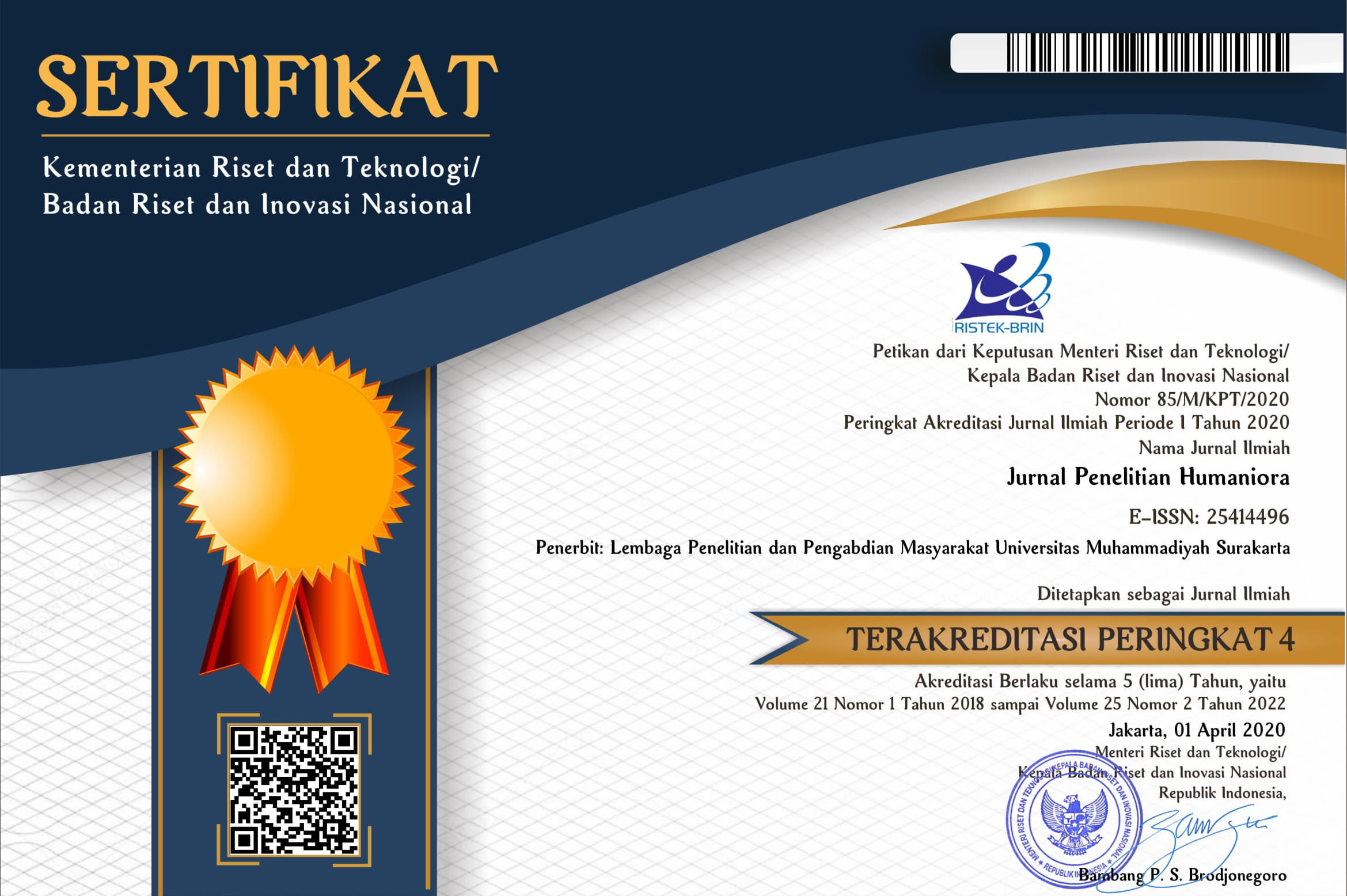SECOND LANGUAGE LEARNERS’ ATTITUDES AND STRATEGIES IN LEARNING ENGLISH AS A FOREIGN LANGUAGE
Eva Istiyani(1*)(1) MTs Darul Ulum Bandungharjo, Donorojo, Jepara
(*) Corresponding Author
Abstract
This study focused on comparison of learner’s attitude and strategies in learning En- glish between the high and low achievers. The qualitative descriptive analytic method is implemented in this study. The 10 ninth graders of MTs Darul Ulum Bandungharjo were chosen as the subject of the study and questionnaires are used as the research instru- ment. The study found that the high and low achievement students had positive atti- tudes towards community, people who speak English, and English in general. However, there was differences between high and low achiever’s attitudes towards English. The high-achievement students argued that they prefered English than other subjects. On the other hand, the low-achievement students disagreed with the statement. This condi- tion showed that attitude was personal. Morever, the strategies were differ from the high and low achievement student. The study found that the high-achievement students used cognitive and metacognitive strategies to improve their ability in English. How- ever, the low-achievement students used only some of cognitive strategies in learning English. As a summary, cognitive and metacognitive strategies accompanied by posi- tive attitude and motivation influenced the learners’ achievements of English skills.
Keywords
Full Text:
PDFReferences
Brown, H. D. 2007. Principles of Language Learning and Teaching, Fifth
Chomsky, N. 2000. New Horizons in the Study of Language and Mind. Cambridge: Cambridge University press.
Ellis, R. 1994. The study of Second Language Acquisition. Oxford: Oxford University Press.
Fauziati, E. 2010. Teaching English as a Foreign Language. Surakarta Era Pustaka Utama.
Fauziati, E. 2011. Readings on applied Linguistics: A Handbook for Teachers and Teacher Researcher. Surakarta: Era Pustaka Utama.
Harmer, J. 2007. The Practice of English language Teaching. Edinburg: Longman.
Holmes, J. 2001. An Introduction to Sociolinguistics, Second Edition. Longman: Edinburg.
Huang, S. 2008. “Assessing Motivation and Learning Strategies Using the Motivated Strategies for Learning Questionnaire in a Foreign Language Learning Context.” Social Behavior and Personality, 36(4), 529-534. Retrieved on December 6, 2013 from http://www.corfstart.nl/ document.aspx?iddoc=98
Li, Y. 2009. “L2 Learners’ Attitudes to English Vocabulary Learning Strategies”. English Didactics. Retrieved on November 30, 2013 from http://www.diva-portal.org/smash/get/diva2:225018/FULLTEXT01.pdf.
Oxford, R. L. 2003. “Language Learning Styles and Strategies:An Overview.” GALA, 1-25. Retrieved on December 6, 2013 from http://hyxy.nankai.edu.cn/jingpinke/buchongyuedu/ learning%20strategies%20by%20Oxford.pdf
Qingquan, N., Chatupote, M., and Teo, A. 2008. “A Deep Look into Learning Strategy Use by Successful and Unsuccessful Students in the Chinese EFL Learning Context”. Regional Language Centre Journal 39(3), 338-358. Retrieved on December 6, 2013 from http://rel.sagepub.com/cgi/content/abstract/39/3/338
Tahaineh, Y. 2013. “Jordanian Undergraduates’ Motivations and Attitudes towards Learning English in EFL Context”. International Review of Social Sciences and Humanities, 4 (2), 159-180 Retrieved on December 6, 2013 from http://irssh.com/yahoo_site_admin/assets/docs/
_IRSSH-433-V4N2.44203943.pdf
Article Metrics
Abstract view(s): 2133 time(s)PDF: 5808 time(s)
Refbacks
- There are currently no refbacks.











